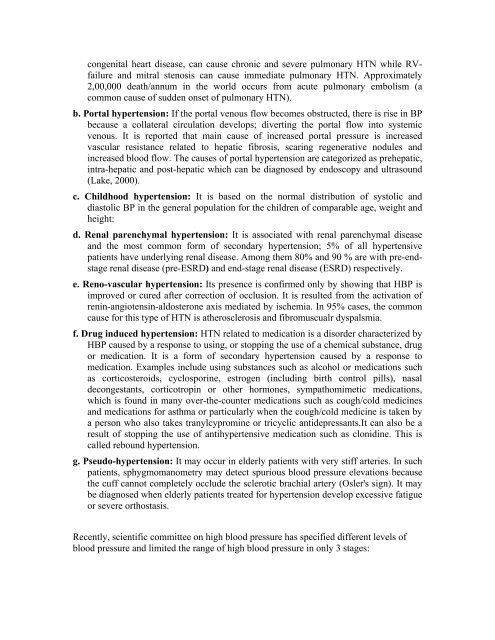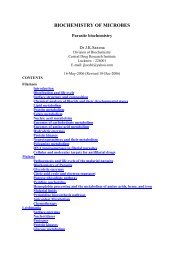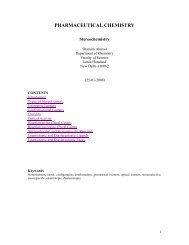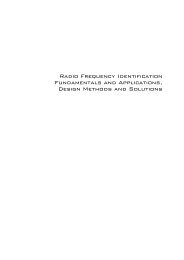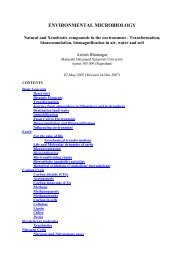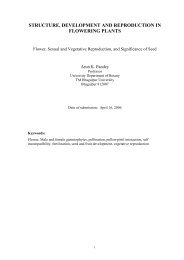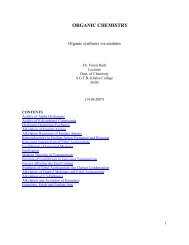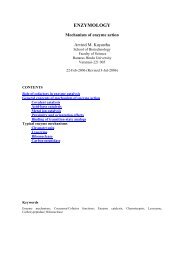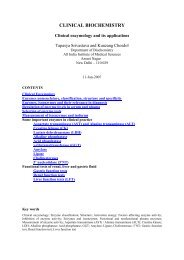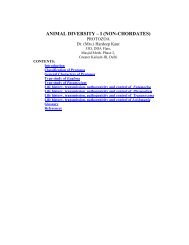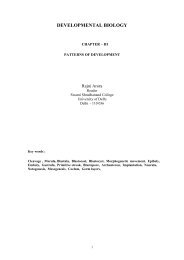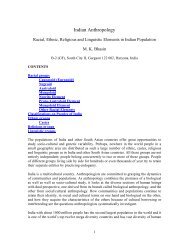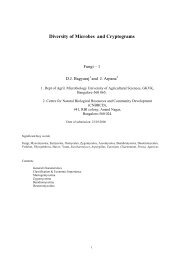MEDICINAL CHEMISTRY
MEDICINAL CHEMISTRY
MEDICINAL CHEMISTRY
You also want an ePaper? Increase the reach of your titles
YUMPU automatically turns print PDFs into web optimized ePapers that Google loves.
congenital heart disease, can cause chronic and severe pulmonary HTN while RV-<br />
failure and mitral stenosis can cause immediate pulmonary HTN. Approximately<br />
2,00,000 death/annum in the world occurs from acute pulmonary embolism (a<br />
common cause of sudden onset of pulmonary HTN).<br />
b. Portal hypertension: If the portal venous flow becomes obstructed, there is rise in BP<br />
because a collateral circulation develops; diverting the portal flow into systemic<br />
venous. It is reported that main cause of increased portal pressure is increased<br />
vascular resistance related to hepatic fibrosis, scaring regenerative nodules and<br />
increased blood flow. The causes of portal hypertension are categorized as prehepatic,<br />
intra-hepatic and post-hepatic which can be diagnosed by endoscopy and ultrasound<br />
(Lake, 2000).<br />
c. Childhood hypertension: It is based on the normal distribution of systolic and<br />
diastolic BP in the general population for the children of comparable age, weight and<br />
height:<br />
d. Renal parenchymal hypertension: It is associated with renal parenchymal disease<br />
and the most common form of secondary hypertension; 5% of all hypertensive<br />
patients have underlying renal disease. Among them 80% and 90 % are with pre-endstage<br />
renal disease (pre-ESRD) and end-stage renal disease (ESRD) respectively.<br />
e. Reno-vascular hypertension: Its presence is confirmed only by showing that HBP is<br />
improved or cured after correction of occlusion. It is resulted from the activation of<br />
renin-angiotensin-aldosterone axis mediated by ischemia. In 95% cases, the common<br />
cause for this type of HTN is atherosclerosis and fibromuscualr dyspalsmia.<br />
f. Drug induced hypertension: HTN related to medication is a disorder characterized by<br />
HBP caused by a response to using, or stopping the use of a chemical substance, drug<br />
or medication. It is a form of secondary hypertension caused by a response to<br />
medication. Examples include using substances such as alcohol or medications such<br />
as corticosteroids, cyclosporine, estrogen (including birth control pills), nasal<br />
decongestants, corticotropin or other hormones, sympathomimetic medications,<br />
which is found in many over-the-counter medications such as cough/cold medicines<br />
and medications for asthma or particularly when the cough/cold medicine is taken by<br />
a person who also takes tranylcypromine or tricyclic antidepressants.It can also be a<br />
result of stopping the use of antihypertensive medication such as clonidine. This is<br />
called rebound hypertension.<br />
g. Pseudo-hypertension: It may occur in elderly patients with very stiff arteries. In such<br />
patients, sphygmomanometry may detect spurious blood pressure elevations because<br />
the cuff cannot completely occlude the sclerotic brachial artery (Osler's sign). It may<br />
be diagnosed when elderly patients treated for hypertension develop excessive fatigue<br />
or severe orthostasis.<br />
Recently, scientific committee on high blood pressure has specified different levels of<br />
blood pressure and limited the range of high blood pressure in only 3 stages:


